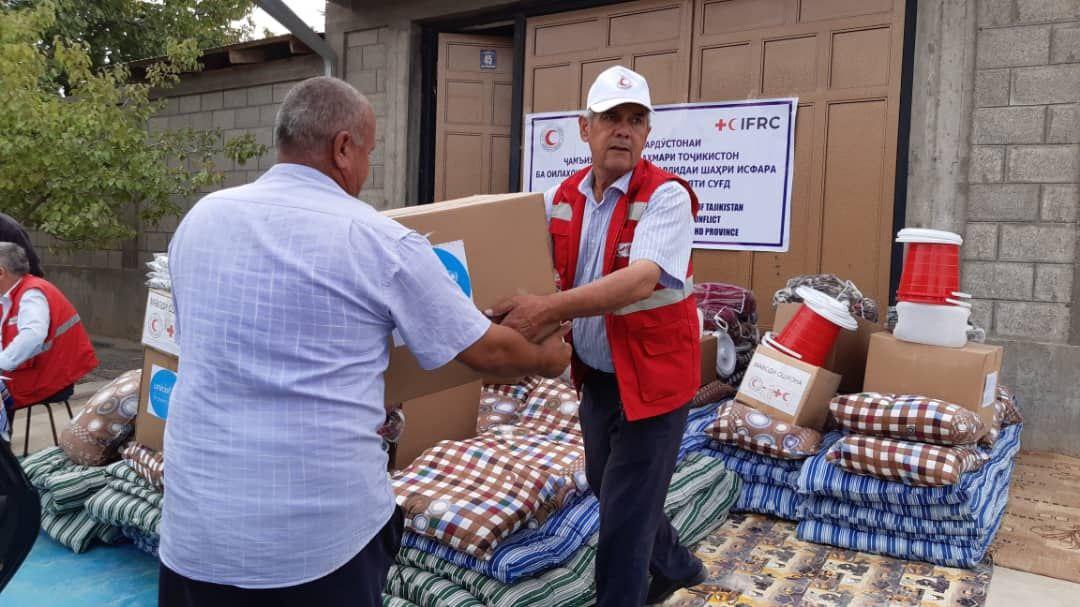European Union brings relief to the victims of border conflict in Kyrgyzstan and Tajikistan

The European Union is providing over 270,000 EUR in humanitarian funding in response to the armed conflict that marred the border between Kyrgyzstan and Tajikistan in mid-September. The aid will contribute to support about 12,000 people in some of the worst affected areas in Kyrgyzstan’s Batken province and in Tajikistan’s Sughd province, Rasht valley and Lakhsh districts.
The EU funding supports the Red Crescent Society of Kyrgyzstan’s (RCSK) and the Red Crescent Society of Tajikistan (RCST) in distributing much-needed cash grants to enable affected families in both countries – especially those who lost their homes. Other assistance, including health and hygiene promotion activities, hygiene products and psychological support, will also be provided.
The funding is part of the EU’s overall contribution to the Disaster Relief Emergency Fund (DREF) of the International Federation of Red Cross and Red Crescent Societies (IFRC), as well as the the Programmatic Partnership with IFRC to provide effective and adapted local response to communities in need.
Some 100 people were killed and over 150,000 forced to flee their homes in several districts along the border between Kyrgyzstan and Tajikistan after a dispute over the lack of access to water, roads and pastures escalated into armed conflict along the contentious border on 14 September. Two days of heavy clashes between Kyrgyz and Tajik troops also damaged hundreds of houses, public facilities and infrastructure, causing many to lose their homes, belongings, food supplies and sources of livelihoods.
Background - EU Humanitarian aid
The European Union together with its Member States is the world's leading donor of humanitarian aid. Relief assistance is an expression of European solidarity towards people in need around the world. It aims to save lives, prevent and alleviate human suffering, and safeguard the integrity and human dignity of populations affected by natural disasters and human-made crises.
Through its European Civil Protection and Humanitarian Aid Operations (ECHO), the European Union helps over 120 million victims of conflicts and disasters every year. For more information, please visit ECHO's website.
The European Commission has signed a €3 million humanitarian contribution agreement with the International Federation of Red Cross and Red Crescent Societies (IFRC) to support the Federation's Disaster Relief Emergency Fund (DREF). Funds from the DREF are mainly allocated to “small-scale” disasters – those that do not give rise to a formal international appeal.
The Disaster Relief Emergency Fund was established in 1985 and is supported by contributions from donors. Each time a National Red Cross or Red Crescent Society needs immediate financial support to respond to a disaster, it can request funds from the DREF. For small-scale disasters, the IFRC allocates grants from the Fund, which can then be replenished by the donors. The contribution agreement between the IFRC and ECHO enables the latter to replenish the DREF for agreed operations (that fit in with its humanitarian mandate) up to a total of €3 million.
CONTACT DETAILS
Peter Biro (peter.biro@echofield.eu)
Regional Information Officer for Asia and the Pacific, European Civil Protection and Humanitarian Aid Operations (ECHO)
